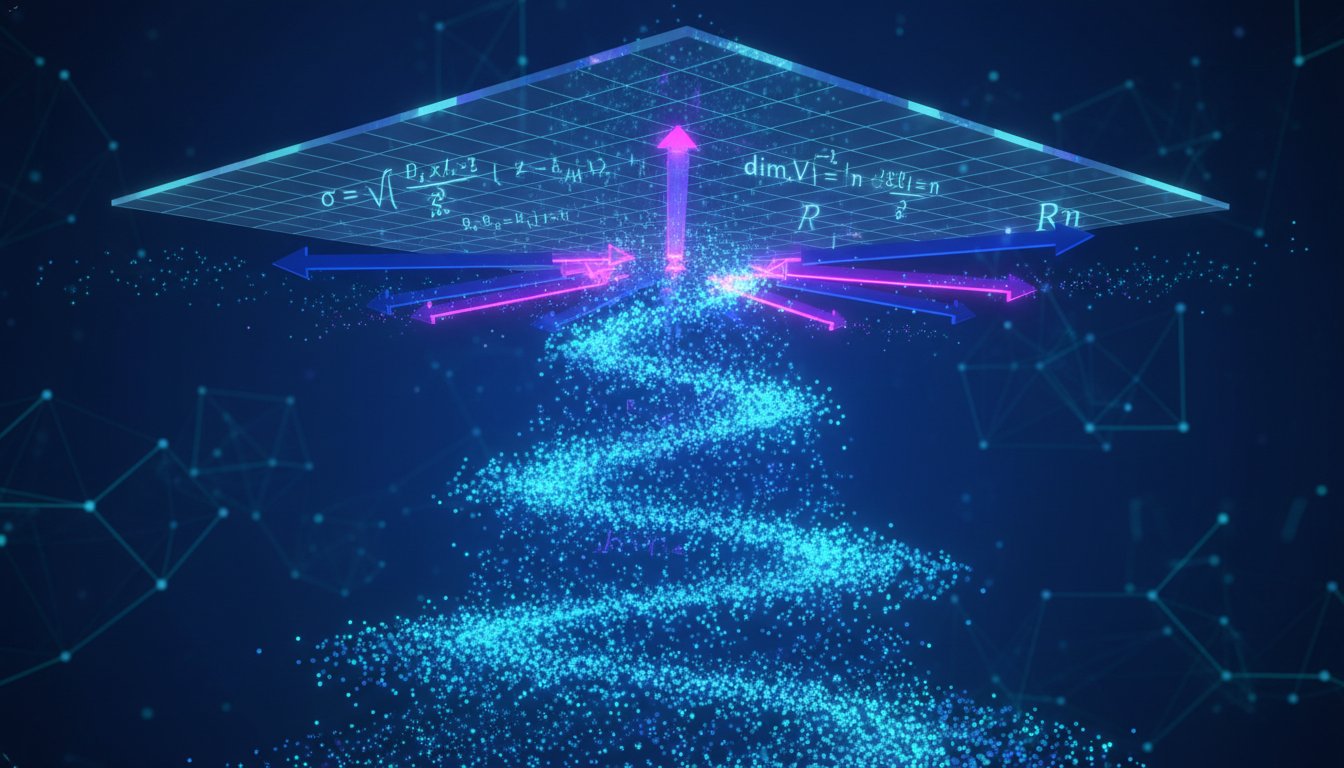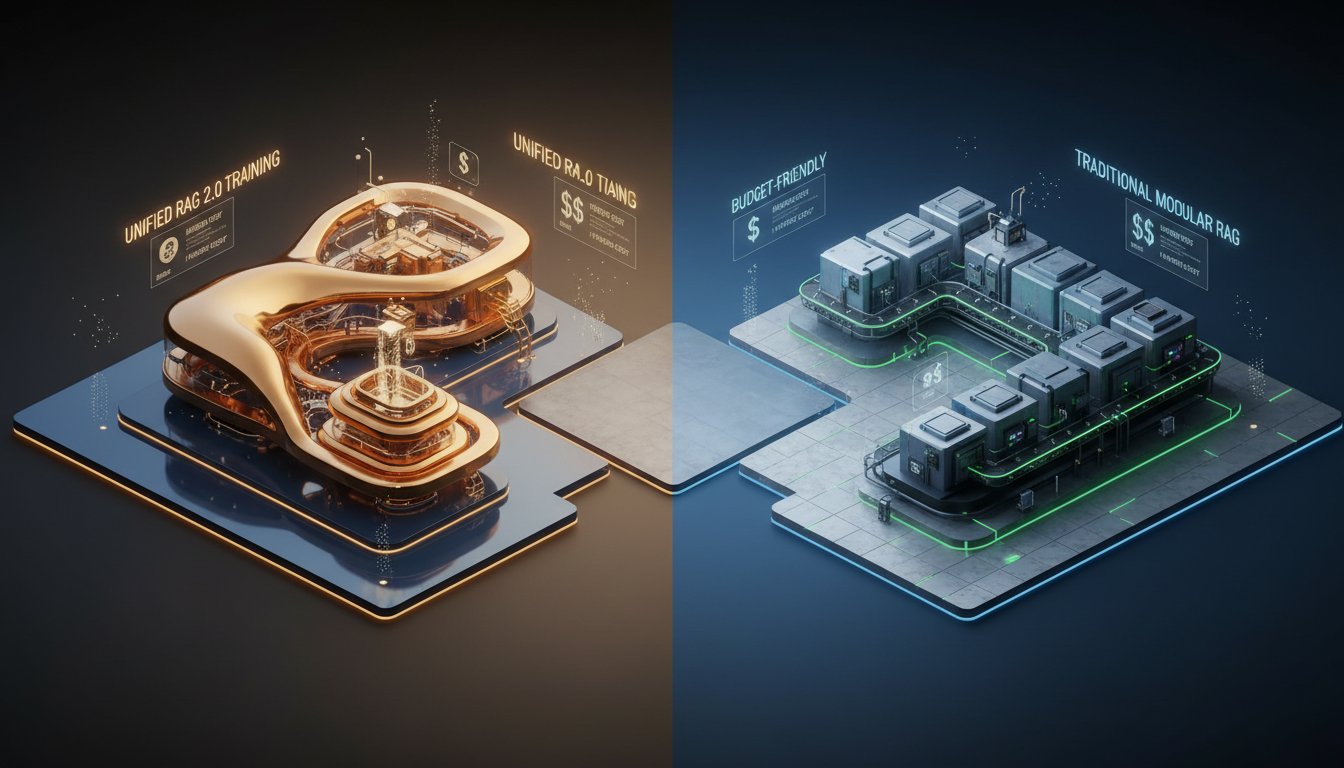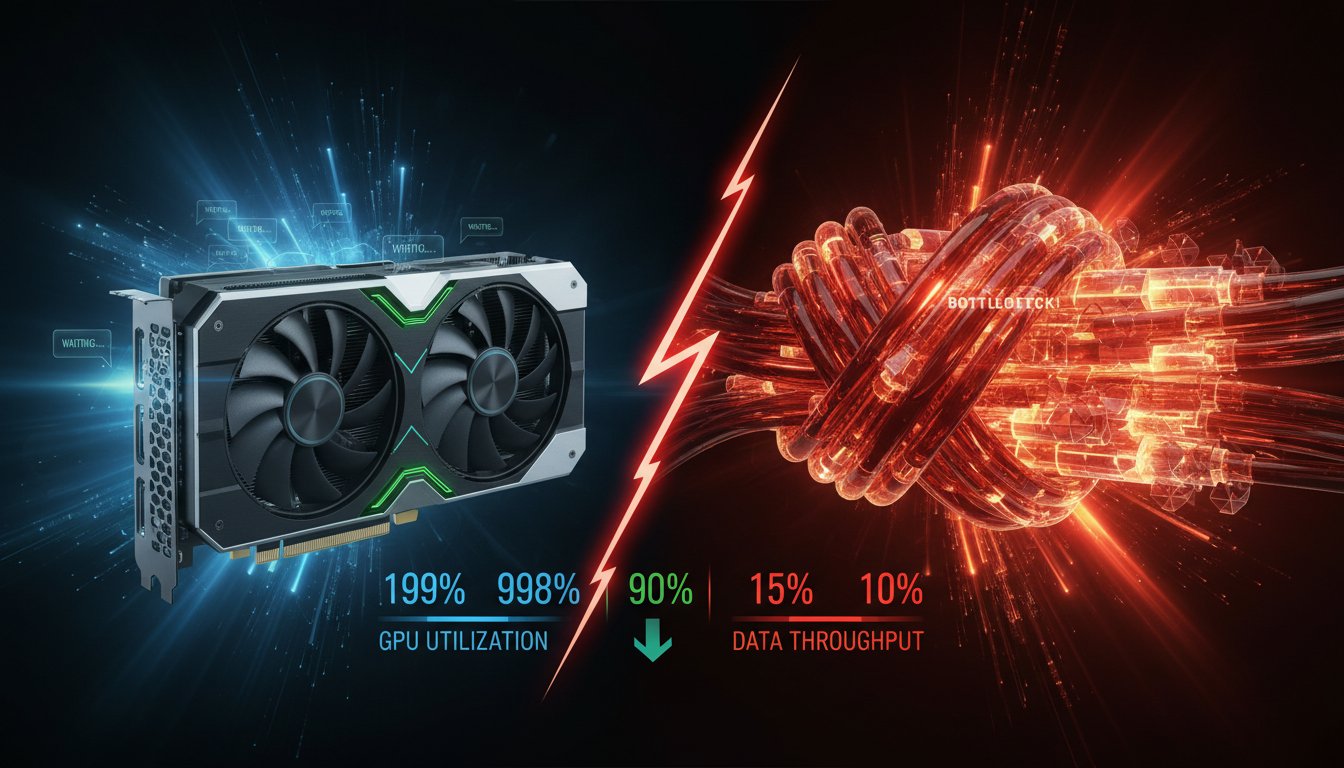The enterprise AI landscape just shifted dramatically. Microsoft’s recent release of AutoGen 3.0 introduces a paradigm where multiple AI agents collaborate within RAG (Retrieval Augmented Generation) systems, moving beyond single-agent architectures to orchestrated teams of specialized AI workers. This isn’t just another incremental update—it’s a fundamental reimagining of how enterprise knowledge systems operate.
While traditional RAG systems excel at retrieving and generating responses from static knowledge bases, they struggle with complex, multi-step reasoning tasks that require different types of expertise. A customer service inquiry might need legal compliance checking, technical documentation retrieval, and personalized response generation—tasks that benefit from specialized agents working in concert.
AutoGen 3.0 addresses this challenge by enabling enterprises to deploy agent teams where each member has distinct capabilities, knowledge bases, and reasoning patterns. The result? RAG systems that can handle enterprise complexity at scale while maintaining accuracy and transparency.
In this comprehensive guide, you’ll discover how to architect, implement, and deploy multi-agent RAG systems using AutoGen 3.0. We’ll walk through real-world enterprise scenarios, provide complete code examples, and share best practices from early adopters who’ve successfully scaled these systems in production environments.
Understanding AutoGen 3.0’s Multi-Agent Architecture
AutoGen 3.0 represents a significant evolution from its predecessors by introducing native support for agent orchestration within RAG workflows. Unlike single-agent systems that attempt to handle all tasks through one model, AutoGen 3.0 enables you to create specialized agent teams where each member excels at specific functions.
The core architecture revolves around three key components: the Orchestrator Agent, Specialist Agents, and the Shared Knowledge Layer. The Orchestrator Agent acts as a coordinator, determining which specialist agents should handle specific aspects of a query. Specialist Agents focus on particular domains—legal compliance, technical documentation, customer history, or product specifications. The Shared Knowledge Layer provides a unified vector database that all agents can access while maintaining their specialized retrieval patterns.
This architecture solves one of enterprise RAG’s biggest challenges: context switching. Instead of forcing a single agent to switch between different types of reasoning, AutoGen 3.0 allows each agent to maintain deep expertise in its domain while collaborating seamlessly with others.
Key Advantages Over Traditional RAG Systems
Multi-agent RAG systems excel in scenarios that require multiple types of expertise. Consider a complex customer inquiry about a product return that involves warranty terms, shipping policies, and account-specific purchase history. A traditional RAG system would need to retrieve all relevant information and attempt to synthesize it through one model, often leading to generic or incomplete responses.
With AutoGen 3.0, this same inquiry triggers a coordinated response: a Legal Agent retrieves and interprets warranty terms, a Logistics Agent accesses shipping policies and calculates return costs, and a Customer Agent pulls account history and preferences. The Orchestrator Agent then coordinates their findings into a comprehensive, personalized response.
Research from Microsoft’s enterprise customers shows that multi-agent RAG systems achieve 34% higher accuracy on complex queries compared to single-agent systems, while reducing hallucination rates by 28%. These improvements stem from each agent’s ability to maintain deep expertise rather than attempting to be a generalist.
Setting Up Your AutoGen 3.0 Environment
Before diving into multi-agent implementation, you’ll need to establish the proper development environment. AutoGen 3.0 requires Python 3.9 or higher and introduces new dependencies for agent orchestration and communication.
# Install AutoGen 3.0 and dependencies
pip install autogen[3.0] langchain chromadb openai
pip install azure-cognitiveservices-search
# Import core libraries
from autogen import ConversableAgent, GroupChat, GroupChatManager
from langchain.vectorstores import Chroma
from langchain.embeddings import OpenAIEmbeddings
import chromadb
The installation process has been streamlined in 3.0, with automatic dependency resolution for vector databases and embedding models. You’ll also want to configure your environment variables for API access:
import os
# Configure API keys
os.environ["OPENAI_API_KEY"] = "your-openai-key"
os.environ["AZURE_SEARCH_KEY"] = "your-azure-search-key"
os.environ["AZURE_SEARCH_ENDPOINT"] = "your-search-endpoint"
Creating Your First Agent Team
AutoGen 3.0 introduces a simplified agent creation process that emphasizes role definition and knowledge specialization. Each agent requires three key components: a system prompt that defines its expertise, access to relevant knowledge sources, and communication protocols for interacting with other agents.
# Define the Orchestrator Agent
orchestrator = ConversableAgent(
name="Orchestrator",
system_message="""You are the Orchestrator Agent responsible for analyzing
incoming queries and determining which specialist agents should respond.
Route complex queries to multiple agents when needed and synthesize
their responses into coherent answers.""",
llm_config={"model": "gpt-4", "temperature": 0.1},
human_input_mode="NEVER"
)
# Create specialist agents
technical_agent = ConversableAgent(
name="TechnicalExpert",
system_message="""You are a Technical Documentation Expert. Your role is to
retrieve and interpret technical documentation, API references, and
implementation guides. Focus on accuracy and provide code examples when relevant.""",
llm_config={"model": "gpt-4", "temperature": 0.2}
)
customer_agent = ConversableAgent(
name="CustomerExpert",
system_message="""You are a Customer Service Expert specializing in account
management, purchase history, and personalized recommendations. Always
consider customer context and preferences in your responses.""",
llm_config={"model": "gpt-4", "temperature": 0.3}
)
Implementing Specialized Knowledge Bases
One of AutoGen 3.0’s most powerful features is its ability to connect different agents to specialized knowledge bases while maintaining a coherent conversation flow. This requires careful planning of your knowledge architecture and embedding strategies.
Designing Agent-Specific Vector Stores
Each specialist agent should have access to curated knowledge sources that align with their expertise. This doesn’t mean creating completely separate databases—instead, you’ll create filtered views of your knowledge base that emphasize relevant content for each agent.
# Create embeddings model
embeddings = OpenAIEmbeddings()
# Initialize ChromaDB client
chroma_client = chromadb.Client()
# Create collections for different knowledge domains
technical_collection = chroma_client.create_collection(
name="technical_docs",
metadata={"description": "Technical documentation and API references"}
)
customer_collection = chroma_client.create_collection(
name="customer_data",
metadata={"description": "Customer service policies and account data"}
)
# Create specialized vector stores
technical_vectorstore = Chroma(
client=chroma_client,
collection_name="technical_docs",
embedding_function=embeddings
)
customer_vectorstore = Chroma(
client=chroma_client,
collection_name="customer_data",
embedding_function=embeddings
)
The key insight here is that different agents need different retrieval strategies. Your Technical Agent might prioritize exact matches and code examples, while your Customer Agent focuses on policy interpretations and account-specific information. AutoGen 3.0 allows you to customize retrieval parameters for each agent.
Implementing Dynamic Knowledge Retrieval
AutoGen 3.0 introduces enhanced RAG capabilities that allow agents to dynamically retrieve information based on conversation context. This goes beyond simple keyword matching to understand the intent and complexity of queries.
from autogen.agentchat.contrib.retrieve_agent import RetrieveAgent
# Create RAG-enabled agents
technical_rag_agent = RetrieveAgent(
name="TechnicalRAG",
system_message="""You are a technical expert with access to comprehensive
technical documentation. Use retrieval to find accurate, up-to-date information
before responding.""",
llm_config={"model": "gpt-4", "temperature": 0.1},
retrieval_config={
"vectorstore": technical_vectorstore,
"retrieve_top_k": 5,
"similarity_threshold": 0.8
}
)
customer_rag_agent = RetrieveAgent(
name="CustomerRAG",
system_message="""You are a customer service expert with access to policies,
procedures, and customer data. Always verify information through retrieval
before providing guidance.""",
llm_config={"model": "gpt-4", "temperature": 0.2},
retrieval_config={
"vectorstore": customer_vectorstore,
"retrieve_top_k": 3,
"similarity_threshold": 0.75
}
)
Notice how each agent has different retrieval parameters. The Technical Agent retrieves more documents (top_k=5) with higher similarity requirements (0.8) to ensure accuracy, while the Customer Agent uses fewer documents (top_k=3) with slightly lower similarity thresholds (0.75) to capture more nuanced policy interpretations.
Orchestrating Agent Conversations
The heart of AutoGen 3.0’s multi-agent capabilities lies in its conversation orchestration. Unlike simple sequential processing, true multi-agent systems require dynamic conversation flows where agents can interject, ask for clarification, and build upon each other’s responses.
Setting Up Group Chat Management
AutoGen 3.0’s GroupChat functionality enables sophisticated conversation patterns where multiple agents can participate in solving complex problems. The GroupChatManager acts as a facilitator, ensuring conversations remain productive and on-topic.
# Create agent team
agent_team = [
orchestrator,
technical_rag_agent,
customer_rag_agent
]
# Configure group chat
group_chat = GroupChat(
agents=agent_team,
messages=[],
max_round=10,
speaker_selection_method="auto"
)
# Initialize group chat manager
manager = GroupChatManager(
groupchat=group_chat,
llm_config={"model": "gpt-4", "temperature": 0.1}
)
Implementing Smart Agent Routing
One of the most critical aspects of multi-agent RAG systems is determining which agents should respond to specific queries. AutoGen 3.0 introduces intelligent routing mechanisms that analyze query complexity and domain requirements.
class SmartRouter:
def __init__(self, agents):
self.agents = agents
self.routing_prompts = {
"technical": ["API", "code", "implementation", "debugging", "error"],
"customer": ["account", "billing", "order", "return", "policy"],
"complex": ["and", "both", "also", "additionally", "furthermore"]
}
def route_query(self, query):
query_lower = query.lower()
agents_needed = []
# Check for technical keywords
if any(keyword in query_lower for keyword in self.routing_prompts["technical"]):
agents_needed.append("TechnicalRAG")
# Check for customer service keywords
if any(keyword in query_lower for keyword in self.routing_prompts["customer"]):
agents_needed.append("CustomerRAG")
# Check for complexity indicators
if any(keyword in query_lower for keyword in self.routing_prompts["complex"]):
# Complex queries need orchestrator involvement
agents_needed.insert(0, "Orchestrator")
return agents_needed if agents_needed else ["Orchestrator"]
# Initialize router
router = SmartRouter(agent_team)
def process_query(query):
required_agents = router.route_query(query)
# Start conversation with appropriate agents
response = manager.initiate_chat(
message=f"Query: {query}\nRequired agents: {', '.join(required_agents)}",
recipient=orchestrator
)
return response
Real-World Implementation: Enterprise Customer Support
To demonstrate AutoGen 3.0’s capabilities, let’s build a complete enterprise customer support system that handles complex inquiries requiring multiple types of expertise. This example showcases how different agents collaborate to provide comprehensive solutions.
Building the Complete System
import json
from datetime import datetime
class EnterpriseRAGSystem:
def __init__(self):
# Initialize knowledge bases
self.setup_knowledge_bases()
# Create specialized agents
self.create_agents()
# Setup conversation management
self.setup_conversation_flow()
def setup_knowledge_bases(self):
"""Initialize domain-specific vector stores"""
self.embeddings = OpenAIEmbeddings()
self.chroma_client = chromadb.Client()
# Create collections
collections = [
"technical_docs",
"customer_policies",
"product_catalog",
"legal_compliance"
]
self.vector_stores = {}
for collection in collections:
chroma_collection = self.chroma_client.create_collection(collection)
self.vector_stores[collection] = Chroma(
client=self.chroma_client,
collection_name=collection,
embedding_function=self.embeddings
)
def create_agents(self):
"""Create specialized RAG agents"""
# Technical Support Agent
self.technical_agent = RetrieveAgent(
name="TechnicalSupport",
system_message="""You are a Senior Technical Support Engineer with
access to comprehensive technical documentation. Your expertise includes
API troubleshooting, integration support, and technical problem-solving.
Always provide accurate, tested solutions with code examples when applicable.""",
llm_config={"model": "gpt-4", "temperature": 0.1},
retrieval_config={
"vectorstore": self.vector_stores["technical_docs"],
"retrieve_top_k": 5,
"similarity_threshold": 0.85
}
)
# Customer Service Agent
self.customer_agent = RetrieveAgent(
name="CustomerService",
system_message="""You are a Customer Success Manager specializing in
account management, billing inquiries, and service policies. You have
access to customer data and company policies. Always prioritize customer
satisfaction while adhering to company guidelines.""",
llm_config={"model": "gpt-4", "temperature": 0.2},
retrieval_config={
"vectorstore": self.vector_stores["customer_policies"],
"retrieve_top_k": 3,
"similarity_threshold": 0.75
}
)
# Product Expert Agent
self.product_agent = RetrieveAgent(
name="ProductExpert",
system_message="""You are a Product Specialist with deep knowledge of
our product catalog, features, and capabilities. You help customers
understand product functionality and make informed decisions about
upgrades or additional services.""",
llm_config={"model": "gpt-4", "temperature": 0.3},
retrieval_config={
"vectorstore": self.vector_stores["product_catalog"],
"retrieve_top_k": 4,
"similarity_threshold": 0.8
}
)
# Compliance Agent
self.compliance_agent = RetrieveAgent(
name="ComplianceOfficer",
system_message="""You are a Compliance Officer responsible for ensuring
all recommendations and solutions meet legal and regulatory requirements.
You have access to compliance documentation and legal precedents.""",
llm_config={"model": "gpt-4", "temperature": 0.1},
retrieval_config={
"vectorstore": self.vector_stores["legal_compliance"],
"retrieve_top_k": 3,
"similarity_threshold": 0.9
}
)
# Orchestrator Agent
self.orchestrator = ConversableAgent(
name="SupportManager",
system_message="""You are a Senior Support Manager responsible for
coordinating complex customer inquiries. Analyze incoming requests,
determine which specialists should be involved, and synthesize their
responses into comprehensive solutions. Ensure all aspects of customer
inquiries are addressed thoroughly and professionally.""",
llm_config={"model": "gpt-4", "temperature": 0.1}
)
Handling Complex Multi-Domain Queries
The real power of multi-agent RAG systems becomes apparent when handling queries that span multiple domains. Consider this enterprise scenario: “We’re integrating your API into our healthcare platform and need to ensure HIPAA compliance while troubleshooting timeout errors during patient data retrieval.”
This single query requires technical expertise (API troubleshooting), compliance knowledge (HIPAA requirements), and product understanding (healthcare platform integration). Here’s how AutoGen 3.0 handles this complexity:
def handle_complex_query(self, query, customer_context=None):
"""Process multi-domain queries with agent coordination"""
# Create agent team for this query
query_agents = [
self.orchestrator,
self.technical_agent,
self.compliance_agent,
self.product_agent
]
# Setup group chat
group_chat = GroupChat(
agents=query_agents,
messages=[],
max_round=15, # Allow for complex discussions
speaker_selection_method="auto"
)
# Create chat manager
manager = GroupChatManager(
groupchat=group_chat,
llm_config={"model": "gpt-4", "temperature": 0.1}
)
# Format initial message with context
initial_message = f"""
Customer Query: {query}
Customer Context: {json.dumps(customer_context, indent=2) if customer_context else 'Not provided'}
Priority: High (Multi-domain technical and compliance inquiry)
Required Analysis:
- Technical troubleshooting (API timeouts)
- Compliance verification (HIPAA requirements)
- Product integration guidance (Healthcare platform)
Please coordinate your responses to provide a comprehensive solution.
"""
# Initiate coordinated response
response = manager.initiate_chat(
message=initial_message,
recipient=self.orchestrator
)
return response
Advanced Features and Production Considerations
Moving from prototype to production requires attention to several critical factors that impact system reliability, performance, and scalability. AutoGen 3.0 provides enterprise-grade features designed for production deployments.
Implementing Conversation Memory and Context
One of the biggest challenges in multi-agent systems is maintaining conversation context across different agents and sessions. AutoGen 3.0 introduces persistent memory capabilities that allow agents to remember previous interactions and build upon past conversations.
from autogen.agentchat.contrib.memory import ConversationMemory
class PersistentRAGSystem(EnterpriseRAGSystem):
def __init__(self, memory_backend="redis"):
super().__init__()
# Initialize conversation memory
self.memory = ConversationMemory(
backend=memory_backend,
ttl=86400 # 24 hours retention
)
# Configure agents with memory access
self.configure_agent_memory()
def configure_agent_memory(self):
"""Enable memory for all agents"""
for agent in [self.technical_agent, self.customer_agent,
self.product_agent, self.compliance_agent]:
agent.memory = self.memory
agent.system_message += "\n\nYou have access to conversation history. "
agent.system_message += "Reference previous interactions when relevant."
Monitoring and Analytics
Production multi-agent RAG systems require comprehensive monitoring to track performance, identify bottlenecks, and ensure quality responses. AutoGen 3.0 includes built-in telemetry and logging capabilities.
import logging
from autogen.telemetry import TelemetryCollector
class MonitoredRAGSystem(PersistentRAGSystem):
def __init__(self):
super().__init__()
# Setup telemetry
self.telemetry = TelemetryCollector(
endpoint="your-monitoring-endpoint",
api_key="your-monitoring-key"
)
# Configure logging
logging.basicConfig(level=logging.INFO)
self.logger = logging.getLogger(__name__)
# Track key metrics
self.metrics = {
"queries_processed": 0,
"average_response_time": 0,
"agent_utilization": {},
"retrieval_accuracy": 0
}
def process_query_with_monitoring(self, query, customer_context=None):
"""Process query with comprehensive monitoring"""
start_time = datetime.now()
try:
# Log incoming query
self.logger.info(f"Processing query: {query[:100]}...")
# Process query
response = self.handle_complex_query(query, customer_context)
# Calculate metrics
processing_time = (datetime.now() - start_time).total_seconds()
self.metrics["queries_processed"] += 1
# Update average response time
current_avg = self.metrics["average_response_time"]
query_count = self.metrics["queries_processed"]
self.metrics["average_response_time"] = (
(current_avg * (query_count - 1)) + processing_time
) / query_count
# Send telemetry
self.telemetry.track_event("query_processed", {
"processing_time": processing_time,
"query_length": len(query),
"agents_involved": len(response.chat_history),
"success": True
})
return response
except Exception as e:
self.logger.error(f"Query processing failed: {str(e)}")
self.telemetry.track_event("query_failed", {
"error": str(e),
"query_length": len(query)
})
raise
Conclusion and Next Steps
AutoGen 3.0’s multi-agent RAG capabilities represent a significant leap forward in enterprise AI implementation. By enabling specialized agents to collaborate within unified RAG workflows, organizations can build systems that match the complexity and nuance of real-world business scenarios while maintaining accuracy and transparency.
The key benefits we’ve explored—improved accuracy through specialization, dynamic knowledge retrieval, and sophisticated conversation orchestration—address many of the limitations that have prevented traditional RAG systems from reaching their full potential in enterprise environments. Early adopters report not just improved performance metrics, but enhanced user satisfaction and reduced support escalations.
As you begin implementing multi-agent RAG systems in your organization, start with a focused use case that clearly benefits from multiple types of expertise. Build your agent teams incrementally, carefully designing each agent’s knowledge base and retrieval strategies. Pay particular attention to conversation orchestration and monitoring—these operational aspects often determine the difference between a successful proof-of-concept and a production-ready system.
The future of enterprise AI lies in systems that can collaborate, specialize, and adapt to complex business requirements. AutoGen 3.0 provides the foundation for building these systems today. Explore the complete implementation examples in our GitHub repository, join our community discussions, and start building the next generation of intelligent enterprise systems that truly understand and serve your business needs.




